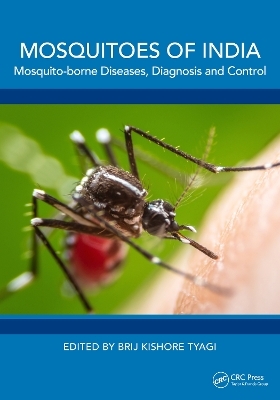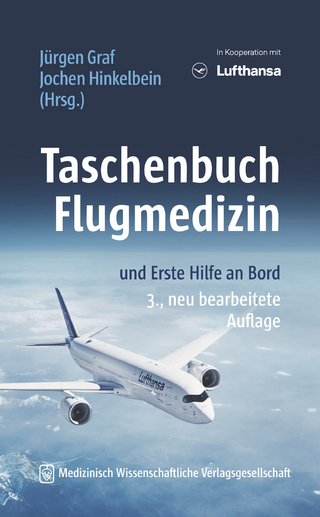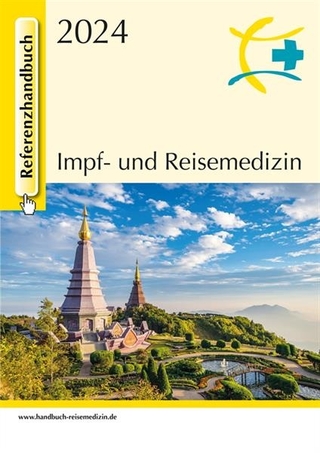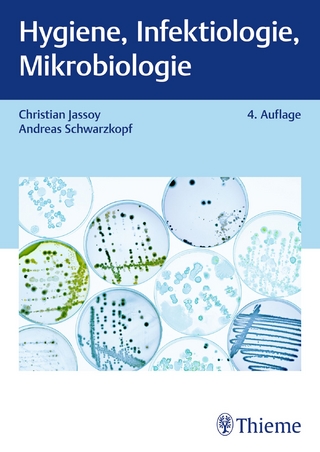
Mosquitoes of India
CRC Press (Verlag)
978-1-032-35462-0 (ISBN)
- Noch nicht erschienen (ca. April 2025)
- Versandkostenfrei innerhalb Deutschlands
- Auch auf Rechnung
- Verfügbarkeit in der Filiale vor Ort prüfen
- Artikel merken
This is an up-to-date and comprehensive handbook that presents a wealth of information on the different aspects of one of the largest dipterous family, Culicidae (Mosquitoes). India shares more than ten per cent of the global mosquito fauna and some of the deadliest mosquito species occur in the country, implying that globally India has been always in the forefront of research and control of such mortifying and/or debilitating diseases as malaria, lymphatic filariasis, dengue, chikungunya, zika, Japanese encephalitis, West Nile Virus etc. etc. This book illustrates updated information, including chemical, biological, herbal and genetical, on the control of vectors and showcases mosquito preponderance in the neighbouring countries. The book additionally deals with the biosafety principles in theory and practice, use of emerging science of Artificial Intelligence in mosquito identity and control, and of course consideration of mosquitoes in human psyche. This authoritative account is a crucial reference source for mosquito-borne disease control and prevention. This book is meant for researchers, university students, medical entomologists, parasitologists, and public health professionals.
Key Features:
1. Provides up-to-date inventory on major mosquito-borne diseases in India.
2. Offers latest information on chemical, biological, herbal and genetical control of mosquito vectors.
3. Presents inventories of mosquito wealth and vector-borne infectons in the neighbouring countries.
4. Sheds light on the principles of biosafety in theory and practice, consideration of mosquitoes in human psyche, other than its villainous portrayal, as pollinators, source of molecules of pharmacological significance such as proteins, and anaesthetics, and, of course, beautification.
5. Discusses application of the emerging science of Artificial Intelligence in mosquito identification and control.
Dr Brij Kishore Tyagi currently serves as the Professor of Practice, Department of Biosciences, University Institute of Biotechnology, Chandigarh University, Mohali (Punjab), India as well as the Advisor, Vellore Institute Technology, India, and the Consultant, Reckitt Benckiser, Gurugram (Haryana), India. He completed his MSc (Zoology) in 1974 and Ph.D. (Entomology/Zoology) in 1978. He joined the Malaria Research Centre (now National Institute of Malaria Research) in 1981 on a WHO-TDR research project on tribal malaria in south Gujarat, and subsequently the ICMR mainstream as Senior Research Officer at Vector Control Research Centre, Pondicherry in 1984, and as Assistant Director and later Deputy Director at Desert Medicine Research Centre, Jodhpur in 1988. He finally joined as a Scientist ‘F’ (Joint Director) (2000) and subsequently Scientist ‘G’ (Director) & Director-in-Charge (2005/07) at the Centre for Research in Medical Entomology, Madurai (Tamil Nadu State) through 35 years long and highly distinguished career in diverse medico-entomological research, particularly the various vector-borne diseases (VBDs), in most of States and UTs in the country. He emerited from the ICMR Service in 2013, with two years’ extensions till 2015 with all administrative powers. He was appointed first as the Visiting Fellow followed by Visiting Professor at Bharathidasan Univ., Trichy (TN) (2015-16) and subsequently as Visiting Professor at Punjabi Univ., Patiala (Punjab) (2017-19). He has authored more than 700 scientific titles, 43 books, including a Training Manual, “Biosafety for human health and the environment in the context of the potential use of genetically modified mosquitoes (GMMs): A tool for biosafety training based on courses in Africa, Asia and Latin America, 2008–2011”, published by World Health Organization (2015).
- Preface- Foreword- Dedication- Acknowledgements1. Malaria in India2. Lymphatic Filariasis in India3. Dengue in India4. Chikungunya in India5. Zika in India6. Japanese Encephalitis in India7. West Nile in India8. Malaria Diagnosis9. Lymphatic Filariasis Diagnosis10. Arboviruses Diagnosis11. Mosquito Control, Part I: Chemical, Non-Chemical, and Biological Methods12. Mosquito Control, Part II: Plant-Based Products (Phytochemicals)13. Mosquito Control Strategies Based on Genetic Manipulation14. Mosquitoes of Bangladesh15. Mosquitoes of Bhutan16. Mosquitoes of Maldives17. Mosquitoes of Pakistan18. Mosquitoes of Nepal19. Mosquitoes of Sri Lanka20. Biosafety Approaches for Deployment of Genetically Modified Aedes Mosquitoes21. Regulatory Policy, Guidelines, and Ethical Aspects in Genetically Modified Mosquito Research and Their Application in Disease Control Programmes22. Mosquitoes and Human Psyche23. Overview of Artificial Intelligence (AI) in Mosquito Research, with Special Reference to the Future of Indian Fauna24. Mosquitoes for Novel Functional Systems---APPENDIX I: Global Resources in Mosquito Research APPENDIX II: Glossary---
| Erscheint lt. Verlag | 1.4.2025 |
|---|---|
| Zusatzinfo | 18 Tables, black and white; 51 Line drawings, color; 3 Line drawings, black and white; 11 Halftones, color; 62 Illustrations, color; 3 Illustrations, black and white |
| Verlagsort | London |
| Sprache | englisch |
| Maße | 178 x 254 mm |
| Themenwelt | Medizin / Pharmazie ► Medizinische Fachgebiete ► Mikrobiologie / Infektologie / Reisemedizin |
| Naturwissenschaften ► Biologie ► Genetik / Molekularbiologie | |
| Naturwissenschaften ► Biologie ► Zoologie | |
| ISBN-10 | 1-032-35462-3 / 1032354623 |
| ISBN-13 | 978-1-032-35462-0 / 9781032354620 |
| Zustand | Neuware |
| Haben Sie eine Frage zum Produkt? |
aus dem Bereich


